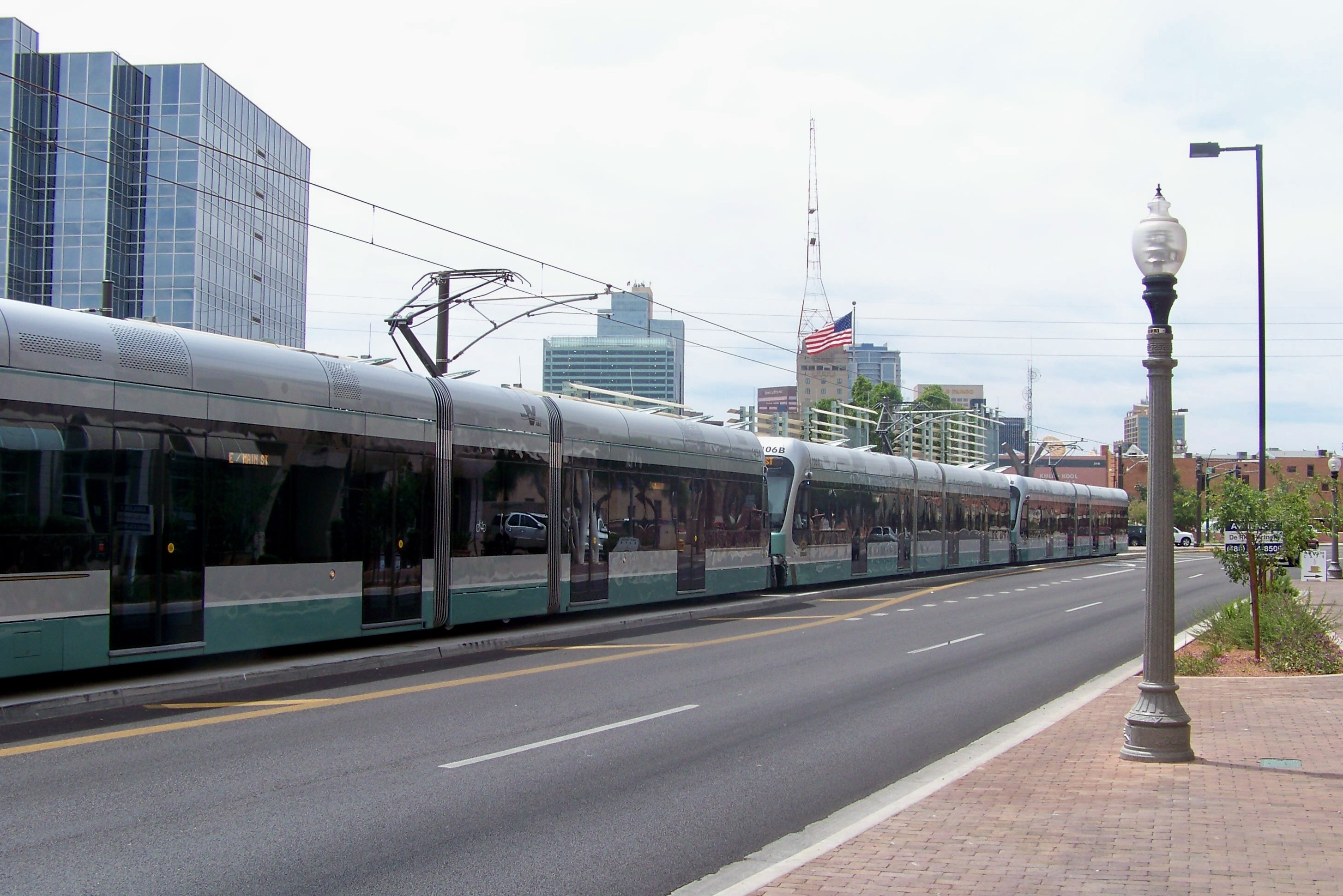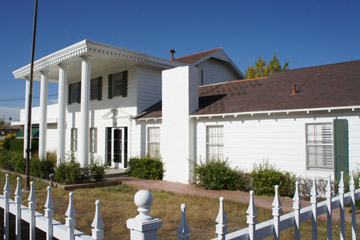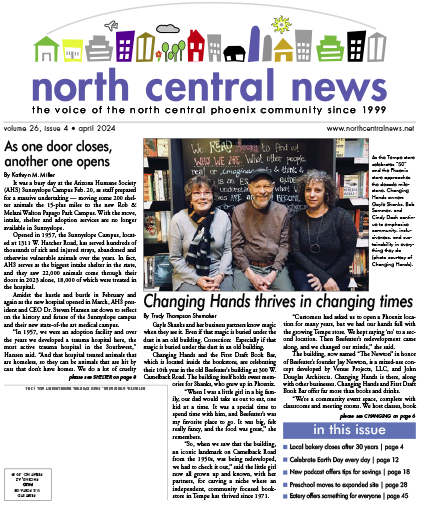Phoenix residents will be asked to vote on two ballot propositions on Aug. 27, each of which will impact millions of dollars in spending by the city of Phoenix in the coming years.
Early ballots for those on the city’s permanent early voting list went out on July 31. A low voter turnout is expected, given the two previous elections already held this year (the mayor in March and two council seats in May), and only two items on the ballot.
But those two items alone will have a long-lasting and significant financial impact on the city.
Prop 105, known as the “Building A Better Phoenix Act,” will effectively kill all future light rail projects in Phoenix, including the already approved northwest extension, from 19th and Dunlap avenues to Metrocenter Mall. Many residents near the current terminus have complained about increased crime activity in the area and actually want to see the extension go forward, so that the last stop is no longer in their neighborhood. A public meeting about the Northwest Extension Phase II is scheduled for Aug. 8 at Metrocenter Mall.
Prop 105 initially came out of opposition to the light rail expansion in south Phoenix. Some business owners along Central Avenue objected to having the current four lanes reduced to two—one in each direction. With the long construction timeline and curtailed access to their businesses, many felt they wouldn’t survive the light rail addition. However, the city council last year approved the south Central Avenue extension, which was first proposed in 2014, despite the objections.
Other opponents of light rail have joined in the fight, and hope to kill all future extensions—both planned and conceptual—and divert the state and city transportation sales tax money to road repairs and better transit services.
Phoenix Mayor Kate Gallego is joined by the Greater Phoenix Chamber of Commerce, the Arizona AFL-CIO, and other area business leaders in supporting future expansions of the light rail line.
Prop 106, called the “Responsible Budget Act,” targets the city’s pension spending, specifically, making the city spend any excess funds it might have in a given fiscal year to pay down the more than $4 billion in pension debt. Currently the city has budgeted $426 million for fiscal year 2019-2020 for its pension debt.
Prop 106 would amend the Phoenix City Charter to require that the city conduct an additional annual assessment of all pension liabilities and impose a cap on budget growth, requiring all funds above the budget cap be spent solely toward pension liabilities if the pension systems are not at least 90-percent funded.
The city had a $55 million budget surplus this year that it plans to use to expand library hours, hire more park rangers, and add administrative positions to the Phoenix Police Department, among other things. If Prop 106 passes, any future “budget surpluses” would have to be funneled toward the pension debt, which would likely curtail the city’s ability to expand existing services or add new services in the future. Public safety services would be exempt from the spending cap.
Voting centers for the special election will be open for three days: Aug. 24, 26 and 27. You can find a list of the voting centers at www.phoenix.gov/elections. For faster service, voters are encouraged to bring their driver license, state-issued identification card, or voter identification card.
If you are a registered voter but not on the city’s Permanent Early Voting List, you can request a ballot be mailed to you. You must submit a signed request for a ballot by mail by Friday, Aug. 16. Request forms are available at www.phoenix.gov/elections or by calling the City Clerk Department at 602-261-8683.










































